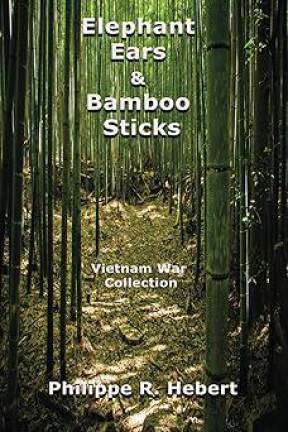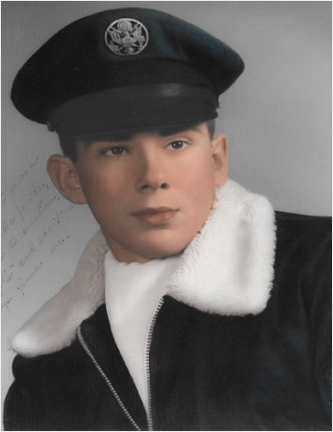Poems recall veteran’s time in Vietnam
NEWTON. Philippe Hebert, 80, is the author of ‘Elephant Ears and Bamboo Sticks: Vietnam War Collection.’


A collection of poetry by U.S. Air Force veteran Philippe Hebert, 80, of Newton about his experiences in Vietnam was published recently.
“I’ve always had a love affair with Asia and over the years wrote a number of poems,” he said.
This is his second book.
“I didn’t want to make the mistake I’d made before and self-publish, so I searched and found a publisher that was a great fit,” he said.
“Elephant Ears and Bamboo Sticks: Vietnam War Collection” was published by Human Error Publishing, an independent publishing company dedicated to developing and showcasing artists of all types.
Hebert’s last name shows that he is a descendant of the first settlers of New France in Canada. He grew up in Lewiston, Maine, which at the time was a mill town with many French-Canadians.
“I learned to speak English when I was 13, and we moved to Silver Spring, Maryland,” he said.
Hebert joined the Air Force in October 1962 after finishing high school.
“At that time, the Vietnam War was just starting and the U.S. was back-filling as the French were bailing out,” he said. “I was in tech school for training as an instrument and autopilot tech. Then (President) Kennedy was assassinated and Johnson took over, radically increasing presence in the area.”
As a tech based in Thailand in 1964, Hebert was working on F105 fighter/bombers that flew missions exclusively into Vietnam.
“I was later approached to do some secret incursions into Vietnam, Laos and Cambodia, placing personal seismic intrusion devices at key crossings so as to monitor North Vietnamese movements,” he said.
He left southeast Asia in October 1968.
“I had developed a real liking for the people in the region, so about 50 years later, I decided to share some of my experiences,” Hebert said.
“I never wanted to make any political statement about that war, but the bad experiences in San Francisco and being spat on by the ‘hippies’ of the time changed me from being ambivalent about the war to becoming hawkish and finally (I) got disgusted with the entire U.S. government handling (of the war).
“I became a ‘dove,’ “ which he defined as anti-war but not an activist.
Manufacturing consultant
When Hebert left the Air Force, he began working in the aerospace industry. Eventually, he became a a consultant, having written more than 50 articles on manufacturing and operations.
“One of my articles dealt with manufacturing scrap and associated yields,” he said. “This prompted me to address reverse logistics, and a professor at Lehigh University picked up on it and used it as a case study for three or four years.”
His first book was a self-published technical workbook on how companies can save money in freight and logistics. “It was not a best seller ... it sold a total of two copies.
“I was simply driven to share my experiences of southeast Asia during the Vietnam War years. I did not want a repeat of my last book failure. I stumbled on Human Error Publishing and Paul Richmond. They are slightly off dead center and (I) found them to be exactly what I wanted/needed. The marriage was made, and Paul turned out to be great and very patient with me.”
Hebert’s writing is a staccato style that was introduced to him by a Filipina friend who published her works in England.
“The style was a more westernized form of haiku that also meshed with my thinking pattern,” he said. “I fancy myself to be a writer, poet and storyteller, always attempting to paint a picture with words.”
He is writing another poetry book, “The Saffron Robe,” which addresses self-growth and searching for peace and serenity.
Hebert’s goal is to achieve peace and serenity before he reaches 90.
“Additionally, I’m still working on a children’s book about my grandson, his Rottweiler and me entitled ‘Fritz My Bestest Friend,’ “ he said.
He also is working with Fabric8, based at the Sparta Train Station, to develop a curriculum and text about the intermodal industry.
Intermodal is defined as more than one form of transportation involving trucks, air or ships. The project is headed by James Hofmann, a career educator in Newton.